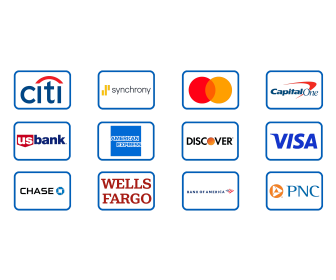Student Loans & Credit Cards: How They Impact Each Other
Student loans and credit cards are often the first major financial tools young adults encounter — but few people realize how closely the two are connected. Both affect your credit score, borrowing power, and long-term financial stability. Understanding how they interact can help you build credit responsibly, avoid debt traps, and prepare for future financial milestones like buying a car or home. Here’s how student loans and credit cards influence each other — for better and worse.
1. Both Build Your Credit History (If Managed Well)
Your credit score depends on how well you handle different types of debt. Student loans are considered installment debt (you borrow a fixed amount and repay it in set installments), while credit cards are revolving debt (you can borrow, repay, and reuse your limit). Having both on your credit report actually helps diversify your credit mix — a factor that accounts for about 10% of your FICO® Score.
Making consistent, on-time payments on both types of accounts builds a strong credit history — something lenders love. Even small missed payments, however, can stay on your record for up to seven years.
2. Missed Payments on Either Can Damage Your Score
Payment history is the single biggest factor in your credit score (about 35%). Missing a student loan or credit card payment can cause immediate damage, dropping your score by 60–100 points or more. While federal student loans usually offer deferment or income-based repayment options, credit cards don’t — one late payment can trigger penalty APRs above 29% and stay on your credit report for years.
Tip: Set up autopay for at least the minimum payment on every account. A single missed payment can undo months of good credit behavior.
3. High Credit Card Balances Can Affect Loan Eligibility
When you apply for private student loans or future refinancing, lenders look at your credit utilization ratio — the percentage of available credit you’re using. High balances on credit cards signal risk and can lead to higher interest rates or even denials. Experts recommend keeping utilization below 30% (or ideally under 10%) to maintain a healthy score and stronger borrowing profile.
For example, if you have a $2,000 limit and carry a $1,000 balance, that’s 50% utilization — high enough to hurt your credit, even if you pay on time.
4. Student Loan Debt Can Limit Your Credit Card Approvals
Lenders use your debt-to-income ratio (DTI) to evaluate how much debt you already have relative to your income. Large student loans increase that ratio, making it harder to qualify for high-limit or premium credit cards. Even if your score looks fine, a high DTI signals that much of your income is already committed to debt repayment, limiting your ability to take on more.
Example: A graduate with $60,000 in loans and $40,000 annual income already has a 150% DTI before considering any credit card balances — a red flag for lenders.
5. Using Credit Cards Wisely Can Help Manage Student Loan Stress
When used responsibly, credit cards can be a tool — not a trap. Using a rewards card for everyday expenses (and paying in full each month) can earn cash back or travel points that help offset living costs. Some cards even offer cash-back bonuses that can be applied toward student loan payments or savings goals. The key is to avoid carrying balances and treat your card as an extension of your budget, not extra income.
Expert insight: Your credit score doesn’t measure how much you owe — it measures how reliably you manage what you owe. Smart use of both loans and cards demonstrates financial maturity, which lenders reward over time.
6. Strategies for Balancing Both
- Automate payments to avoid missed due dates.
- Snowball small debts — pay off your smallest balances first to free up credit.
- Use student-focused cards that report to all three bureaus and offer low limits to build credit safely.
- Check credit reports annually for errors — student loan servicers sometimes misreport deferment status.
Final Thoughts
Student loans and credit cards aren’t enemies — they’re tools that shape your financial future. Manage them wisely, and they’ll open doors to better rates, higher credit limits, and financial freedom. Mismanage them, and they can delay major life milestones by years. The secret isn’t avoiding debt entirely — it’s learning to make debt work for you, not against you.
Not financial advice. Loan and credit terms vary by lender and borrower profile. Always consult your student loan servicer or financial advisor for personalized guidance.
Continue reading: Millennial Money Tips: Credit Cards Edition · How Your Credit Utilization Ratio Affects Your Score — And What to Do



